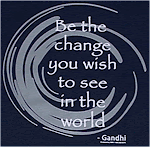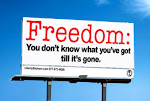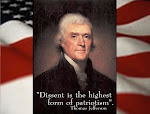MONTANA COUNTS IT VOTES RIGHT
ED KEMMICK, BILLINGS GAZETTE, MT Steve Corrick, an election-reform
advocate in Missoula, has a simple formula for ensuring the most
reliable election results: "Trust paper, and then count the paper."
That, in essence, is also what is required under Montana law. A bill
enacted by the 2005 Legislature requires all voting technology in the
state to use paper ballots that also can be counted by hand.
That's why the most recent election - when the eyes of the nation were
trained on a handful of all-night tabulations in Montana, with the
balance of the U.S. Senate at stake - didn't turn into a Florida-style
debacle. It may have been a long night, but nobody questioned the
results the next morning.
It is also why the balance of the Montana House of Representatives will
be decided Tuesday in Yellowstone County, where a tie vote in a Laurel
House race will be subjected to a hand recount of nearly 4,500 ballots.
Some states use electronic voting devices that involve a touch screen.
With those, there is no paper trail, no way of verifying results or
conducting a recount. In Montana, 16 sparsely populated counties still
hand-count ballots, but even in counties where optical scanners are used
to tally votes, the ballots, with their penciled-in ovals, can be
examined by hand, as in the recount planned for Tuesday.
Having those paper ballots to fall back on is a distinction that makes
Montana the envy of election activists in many states.
Warren Stewart, a Californian who is the policy director for Vote Trust
USA, said there is no replacement for being able to examine individual
paper ballots manually filled out by voters.
"By and large, the system you have in place in Montana is the system we
advocate most strongly for," he said.
John Gideon of Seattle, executive director of Voters Unite, said paper
ballots are "the gold standard.". . .
Rep. Brady Wiseman, D-Bozeman, who introduced the law requiring paper
ballots in the 2005 session and who was elected to a second term on Nov.
7, said the next reform needed is a law mandating an audit of election
results. The audit would involve hand-counting a large sample of paper
ballots from each precinct in counties where vote-counting machines are
used, then running those votes through the machines again to measure
their accuracy. . .
Wiseman said a private company looking to buy machines to perform a
function as important as counting votes would insist on a "huge number
of acceptance tests" before closing the deal, and election officials
should insist on no less. "The missing link in our election technology
at this point is random audits on vote-counting machines," Wiseman said.
. .
Sara Busey of Missoula, the Help America Vote Act representative for the
Montana League of Women Voters, said the requirement for an
audit-recount will be the league's top priority for election reform in
the upcoming legislative session. She said 26 states have some kind of
mandatory paper trail for votes, and 15 of those require random audits.
. . .
http://www.billingsgazette.net/articles/2006/11/26/news/state/27-votemachines_z.txt
BRAD BLOG - Ron Rivest visited Georgia on Nov. 7 and has recently
reported on what he saw as he visited with the head of the state's
elections and some polls in different counties. He was told by Kathy
Rogers, the state elections boss, that the state did illegally use
uncertified software in 2002. Rivest also found that the state seems to
have decided it's OK to violate federal law as they turn voters with
questionable registrations away from the polls without offering them a
provisional ballot. . .
http://www.bradblog.com/?p=3856#more-3856
BRAD BLOG - The Alaska Division of Elections is violating the public
records law and should immediately release copies of the electronic
records of the 2006 election results so they can be examined before the
election is certified, Alaska Democratic Party Chair Jake Metcalfe said
today. . . On Nov. 7, Anchorage Superior Court Judge Stephanie Joannides
ordered the Division of Elections to preserve backup copies of the
state's 2006 electronic computer database and subsequent tallies of the
election results. The Division of Elections had refused to make backup
copies of the Diebold computer GEMS database in response to a request
from the Alaska Democratic Party, which then sought an emergency court
order requiring that copies be preserved of these election records. The
Judge agreed with the Democratic Party and issued a temporary
restraining order . . .
http://www.bradblog.com/?p=3855#more-3855
||||||||||||||||||||||||||||||||||||||||||||||||||||||||
LATINOS DEFINITELY IN DEMOCRATS' CAMP
ZOGBY - Just two years after 40% of Hispanic Americans voted for
Republican President George W. Bush's reelection, far fewer say they
think the Republican Party understands them best, a new Zogby - Hispanic
PR Wire telephone poll shows. Barely one in five Hispanic voters - 23% -
said they felt the Republican Party understands them best, compared to
56% who said they think Democrats know them better, the new survey
shows.
Even among Hispanics who said they were themselves Republicans, just 76%
said they thought the GOP understood them best. Another 8% said the
Libertarian Party best understood them, 7% thought Democrats knew them
better, while 10% of Republicans said that either another party better
understood them, or that they were unsure. Among Democratic Hispanics,
83% said their own party better understood them, while 4% said
Republicans understood them best. Another 7% of Democrats said other
minor parties had the best understanding of them, while 7% were
uncertain.
Asked which political party is best equipped to manage a handful of
important issues, Hispanics who said they had voted in the recent
congressional midterm elections favored Democrats on each by wide
margins, including immigration, where 49% said Democrats were better
equipped to manage the issue, compared to 26% who favored the
Republicans.
The longer the respondent's family had been in America, the more likely
they were to support Democrats over Republicans on the issue, the survey
showed. While 43% of those not born in the U.S. said Democrats were
better equipped, 56% of those who were fourth-generation Americans or
greater favored Democrats, suggesting that the more familiar Hispanic
voters were with Republican policies, the less they liked them.
The survey also asked a broader pool of respondents including both
Hispanic voters and non-voters which issues they believed were most
important to the nation, where a significant majority cited the Iraq war
as the dominant issue.
While 60% said the Iraq war was one of the two most important issues,
25% cited jobs and the economy as a top concern. Terrorism was mentioned
by 15%, while 13% said dealing with the illegal immigration problem was
a top concern. As with non-Hispanics across the nation, Democratic
Hispanics were more likely than Republican Hispanics to say the Iraq war
was a top concern.
http://www.zogby.com/news/ReadNews.dbm?ID=1198
||||||||||||||||||||||||||||||||||||||||||||||||||||||||
PSYCHOTICS MORE LIKELY TO SUPPORT BUSH
ANDY BROMAGE, NEW HAVEN ADVOCATE - A collective "I told you so" will
ripple through the world of Bush-bashers once news of Christopher
Lohse's study gets out. Lohse, a social work master's student at
Southern Connecticut State University, says he has proven what many
progressives have probably suspected for years: a direct link between
mental illness and support for President Bush. . .
The thesis draws on a survey of 69 psychiatric outpatients in three
Connecticut locations during the 2004 presidential election. Lohse's
study, backed by SCSU Psychology professor Jaak Rakfeldt and
statistician Misty Ginacola, found a correlation between the severity of
a person's psychosis and their preferences for president: The more
psychotic the voter, the more likely they were to vote for Bush.
But before you go thinking all your conservative friends are psychotic,
listen to Lohse's explanation. "Our study shows that psychotic patients
prefer an authoritative leader," Lohse says. "If your world is very
mixed up, there's something very comforting about someone telling you,
'This is how it's going to be.'". . .
"Bush supporters had significantly less knowledge about current issues,
government and politics than those who supported Kerry," the study says.
Lohse says the trend isn't unique to Bush: A 1977 study by Frumkin &
Ibrahim found psychiatric patients preferred Nixon over McGovern in the
1972 election. . .
For his part, Lohse is a self-described "Reagan revolution fanatic" but
said that W. is just "beyond the pale."
http://www.ctnow.com/custom/nmm/newhavenadvocate/hce-nha-1123-
nh48bushbash48.artnov23,0,1695911.story
||||||||||||||||||||||||||||||||||||||||||||||||||||||||
TEXAS ETHICS COMMISSION OKAYS BRIBERY
LISA SANDBERG EXPRESS-NEWS, TX - A Texas official who receives any sum
of cash as a gift can satisfy state disclosure laws by reporting the
money simply as "currency" without specifying the amount, the Texas
Ethics Commission reiterated. The 5-3 decision outraged watchdog groups
and some officials who accused the commission of failing to enforce
state campaign finance laws. "What the Ethics Commission has done is
legalize bribery in the state of Texas. We call on the commission to
resign en masse," said Tom "Smitty" Smith, who heads Texas Citizen, an
Austin-based group that advocates for campaign finance reform.
Travis County District Attorney Ronnie Earle, a Democrat, said the
"currency" interpretation would render it "perfectly legal to report the
gift of 'a wheelbarrow' without reporting that the wheelbarrow was
filled with cash." In a letter to commissioners, Earle called such an
analysis "absurd and out of step with both the law and current public
attitudes and concerns about corruption in government." Monday's ruling
was preceded by little discussion.
At their last meeting, commissioners said they would welcome more
precise reporting but were powerless to require it, based on current
laws.
"The question here is whether the description of a gift of cash of over
$250 is required to include the value of the gift," the Ethics
Commission opinion said in part. "The term 'description' is not defined
in Chapter 572 of the Government Code, nor is it defined anywhere else
in the Government Code."
"In our opinion, the requirement to describe a gift of cash or cash
equivalent may be satisfied by including in the description the
following: 'currency,' or a description of the gift, such as 'check' or
'money order,' as appropriate," the ruling stated.
http://www.mysanantonio.com/news/metro/stories/MYSA112806.01B.ethics_
decision.2eede27.html
||||||||||||||||||||||||||||||||||||||||||||||||||||||||





































